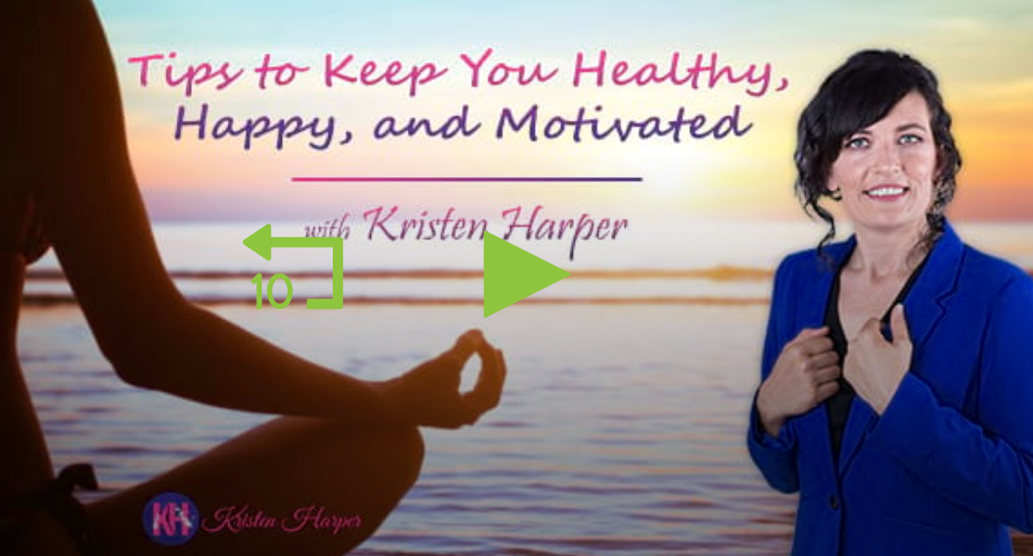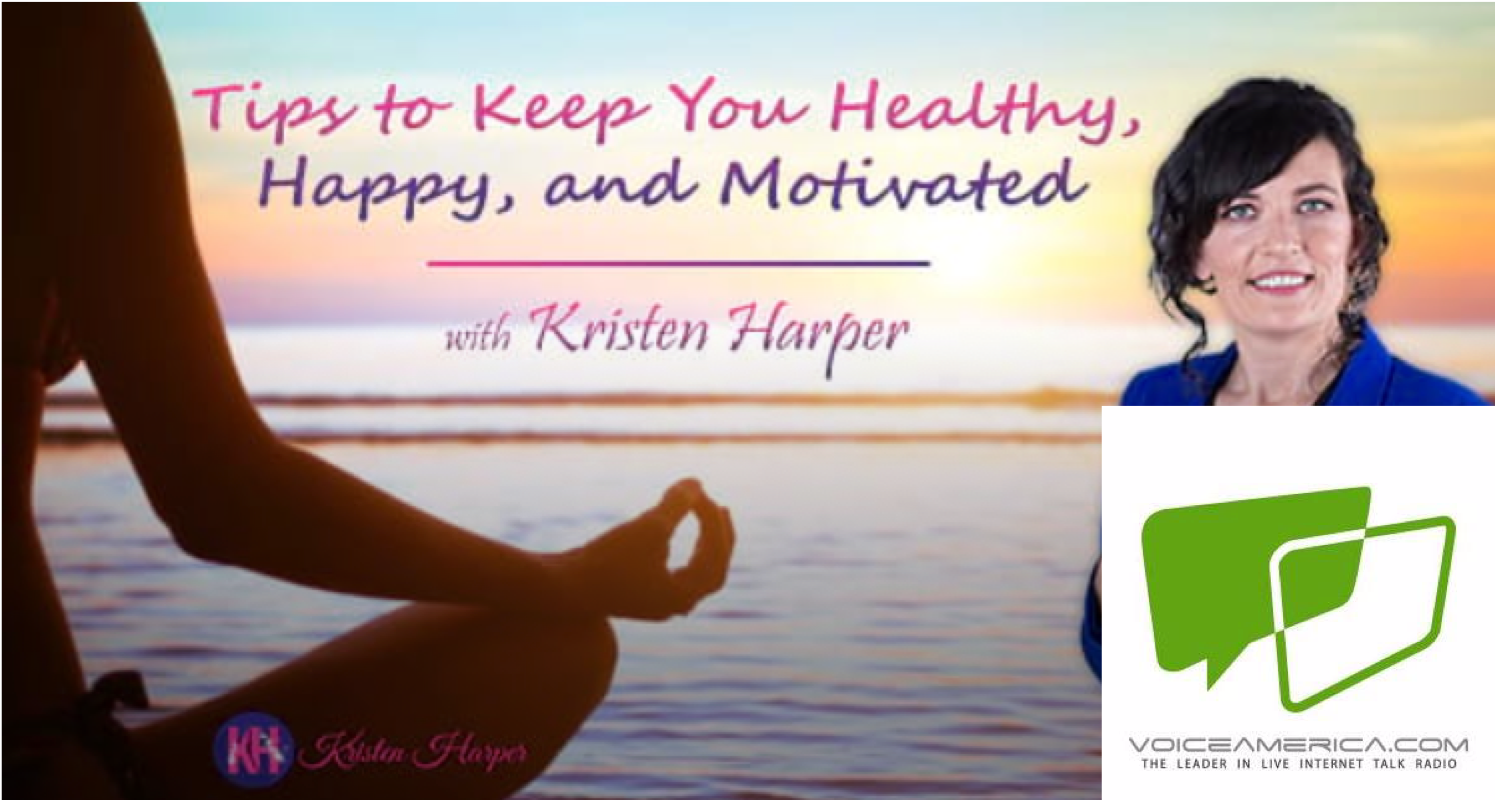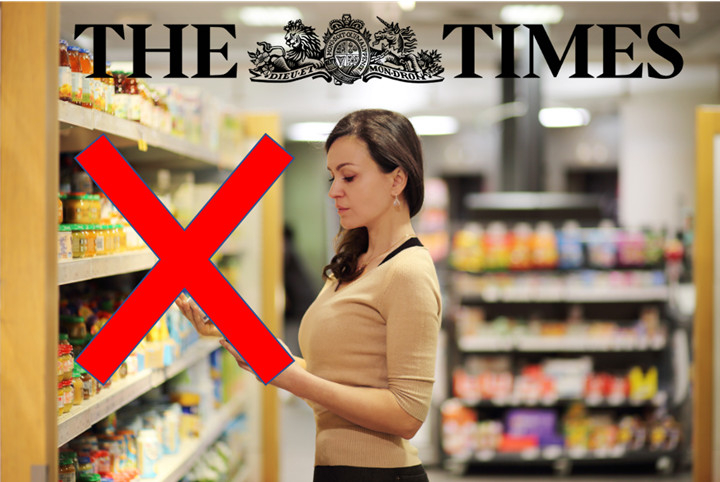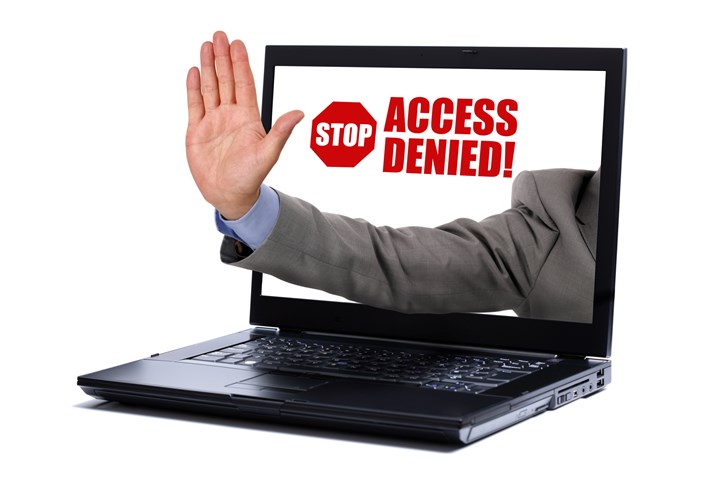Content Sections
Yesterday, an interview with ANH’s founder, Rob Verkerk PhD, was aired on Voice America. The interviewer was Kristen Harper, host of ‘Tips to Keep You Healthy, Happy, and Motivated’. The interview exposes the systematic efforts of major social media platforms to prevent open communications about natural health approaches that citizens might use in place of pharmaceuticals.
Find out from Rob Verkerk how de-platforming, down-ranking, interference with autocompletes and blocking of ad accounts are the latest tricks of the privately-owned social media platforms to stop you getting life-saving information. All of this is falsely justified under the banner of cracking down on ‘health fraud’. In our view, it’s got a lot more to do with protecting Big (Bad) Pharma’s status quo.
Find out too how you can make a difference by telling your story.

Listen to a podcast of the interview
A full transcript of the interview follows:
Kristen Harper: Today’s episode is all about ‘social media is censoring natural health’. My special guest is Dr Robert Verkerk. He is with the Alliance for Natural Health International. Today we will be talking about the Alliance for Natural Health International’s mission, social media censoring of natural health, why they are doing this and what can be done about natural health censorship. If you would like to be a sponsor of the show send an email to [email protected]. You can find more information about Kristen at kristenharperspeaks.com and perfecthealthconsultingservices.com.
Rob Verkerk PhD is an internationally acclaimed, multi-disciplinary sustainability scientist with a 35-year background in environmental, agricultural, food, nutritional and health sciences. He is passionate about working with others to help implement solutions to some of the world’s biggest challenges, by working with nature, not against it.
His experience spans academic, commercial and non-profit sectors. He has a MSc and doctorate from Imperial College London, where he also worked as a postdoc researcher for 7 years.
Rob is the executive and scientific director of the Alliance for Natural Health (ANH) International, a non-profit change organisation he founded in 2002. The ANH has been at the forefront of protecting, promoting and developing innovative approaches to natural and sustainable healthcare internationally. It has pioneered the application of sustainability principles to healthcare, and campaigns for radical reform given the increasing burden of preventable chronic and autoimmune diseases that threaten the future viability of healthcare systems as we know them.
He has authored over 60 papers in scientific journals and conference proceedings and contributes regularly to conferences and popular media. He is a Fellow of the American College of Nutrition.
Rob was born in Kenya and grew up in the Congo, Indonesia and the UK. As an adult, he lived in Australia for over a decade and currently resides with his family in the UK. He is a passionate cook, his food interests being inspired by a lifetime of travel. He loves the great outdoors, is an enthusiastic off-road and road cyclist and is a regular practitioner of various forms of natural movement.
It is an honour to have Dr Robert Verkerk on my radio show.

Rob Verkerk PhD, founder, executive and scientific director, ANH-Intl.
Scientific director, ANH-USA.
Rob Verkerk: Kristen it’s a real pleasure to be with you.
Kristen Harper: I’m really looking forward to this interview and I have to say I’m really impressed with your bio, your expertise. I’m curious before we get into a really interesting topic today. You’ve lived all over. You grew up in the Congo, Indonesia, you were born in Kenya and you lived in Australia for a long time and are presently living in the UK. Do you have a favourite place you’ve lived? You absolutely loved.
Rob Verkerk: Planet Earth is about as close as I can get to that. As someone who’s had a life immersed in ecology, I find it difficult to draw boundaries. Geographical boundaries that humans create. I love the terrestrial environment, I love the oceans. I’m pretty concerned with what we’re doing to all of it to be honest. I don’t really align [with any one country]. I carry a Dutch passport so in a way Holland at some level feels like home. We’ve got an awful lot of friends in America, I feel like I come home every time I come to the States. We’ve got a lot of relatives who live in the States, but I have in Europe, I have in Australia, I have in different parts of the world. This planet is my home. I do love warm countries I have to say, when you’re born and bred in the tropics, I’ve very rarely experienced heat that’s too much for me. I do well in sporting events in very hot weather relative to other people.
Kristen Harper: Learning more about you and going through your bio, I absolutely love nature as well and I’m concerned about our environment. We need to take care of our environment as well as our health. What I stand behind is natural health. Would you be able to talk more about your organisation that you founded back in 2002 – Alliance for Natural Health International.
Rob Verkerk: Sure Kristen. When I set up the organisation Alliance for Natural Health, [the term] 'natural health' wasn’t actually used very much back then. People were thinking about different forms of medicine and there used to be some very intense discussions about integrative medicine or complementary or alternative medicine and what that meant. One of the reasons I aligned more with the idea of natural health is that however you look at it, however humanistic you want to be, however separated you try to be from the natural environment, you cannot actually survive without it. Whether it’s the bacteria, the up to 100 trillion bacteria that live in a healthy gut or even the microbiome on the outside of our skins. Whether it’s the food we put into our gut, that is one of the most intimate ways in which we interact with nature, we cannot live without nature.
Frankly one of the reasons drugs create so many side-effects, even though 75% of them are loosely modelled on nature, is because they are altered in order to create patents and it is that alteration and often delivery of, often very isolated, principles in doses that are not recognised through our own evolution that we create a whole bunch of side effects. To the point where we now have very established facts showing that prescription medicines are the third biggest killers in our society. We know things don’t work so well unless we respect the laws of nature.
I came from a world where I was working with sustainable agriculture. We had drawn many conclusions about the fact that the genetics of the plants that we are now increasingly eating have changed dramatically from [those] our grandparents and great-grandparents were consuming. When we do that, we alter the amount of secondary metabolites, the plant’s natural pesticides which means you don’t need to saturate your crops full of pesticides. Interestingly when I would talk to my colleagues at Imperial College, we have a very big medical dept there, I would say are you aware that the kale or cabbage we eat today, I was working specifically in cruciferous/brassica crop systems, that the crucifer crops we’re now eating have got much fewer of the sulphur containing compounds that act as natural pesticides? That’s one of the reasons they need to be sprayed with pesticides. Are you also aware that when I look at the literature these compounds have very important and beneficial properties in humans? Many of them reduce cancer substantially and they’re being bred out of the cultivars that sit in modern day supermarkets and these doctors would look at you as if you had two heads. They knew nothing about it because it didn’t feature in any part of their own medical training. Coupled with the fact that I was invited as an expert on this generalised problem of dietary simplification. We’ve dramatically reduced the diversity of plant foods in particular that we’re consuming. If we look at the animal food chain we’ve also completely and utterly changed how the animals are being reared. We’re not engaged in nutrient cycling. We’re basically feeding animals convenient foods, often foods that they are not evolutionarily adapted to, the animals are incredibly stressed and we’ve created these massive industrial farming systems that are really not doing people a whole lot of good and people are still getting sicker and sicker.
Now why is this? What parts of the food chain, what parts of what we’re doing to ourselves are changing? It’s not just about food, it’s not just about medicine. The social determinants of health, what we’re doing in terms of social isolation, how we are connected to each other or connected to nature, all these feature. It’s a multi-factorial puzzle that we’re meddling with and it’s making us really sick and until we start to respect and understand nature and allow nature to become our teacher again, we’re going to have many many problems.
[BREAK]
Kristen Harper: Today’s episode is all about social media is censoring natural health. My special guest is Dr Robert Verkerk. Would you like to finish our conversation?
Rob Verkerk: You can have a search through our website. We have a pretty complete history of what we’ve being doing. I’m also scientific director of ANH-USA, our US arm. It has a more advocacy focused mission than we do at International. We work pretty closely on many issues. We’ve also taken very strategic legal actions in the USA in order to protect health claims for example. If you look at both ANH-USA.org and anhinternational.org, you’ll see stuff we’re doing very intensively all the time.
I was also going to mention probably the most ambitious project we’ve ever been involved in. We’re in the middle of it at the moment – which is how you can build an entirely new system of health care that is sustainable that can overlay over any existing system that allows you to use ecological and sustainability principles so that we can see how that works. We believe that unless we have that kind of reform in the way we approach health and that we use ecological principles to understand it and empower people and ensure that citizens own their own data, we will have a system that will literally fall over as the burden of chronic diseases becomes so intense. As populations age, we’re getting this top-heavy age structure. We will have so many people over 60 who are diseased, the system will not be able to cope with it. We need to be thinking about what kind of healthcare should our children and children’s children engage with and we very very adamantly believe this is one that should be governed by the principles of nature.
Kristen Harper: Absolutely. I do appreciate everything you have done. You are making a difference. I appreciate your organisation and your team members. I wanted to let my listeners know that there’s been a lot of censorship, especially when it comes to social media in regards to natural health, it’s even happened to me on Facebook. I’ll give you some examples and then I’ll have Dr Robert Verkerk comment on this. Dr Mercola, who’s a very famous holistic doctor. I read this, it took effect on June 3rd. Google had a broad core update in June 2019 that removed most of Mercola.com pages from its search results. Dr Mercola had fully referenced content that had been at the top of the health search results for over 15 years. His Google traffic to Mercola.com has plummeted by about 99% over the past few weeks. You can read that at Mercola.com. I also wanted to mention if you go to YouTube and you type in let’s say anything about, say anti-vaccine video, even if you go to vaxxed or if you type in anti-vaccine and you go to a video. Underneath the video it states “vaccine hesitancy, a reluctance or hesitancy to be vaccinated or to have one’s children vaccinated is identified by the World Health Organization as one of the Top 10 global health threats of 2019”.
The first time I believe I saw that message this year or last year. I was shocked I’d never seen that before. I was like Wow! Just recently I made a post about vaccines on Facebook. Everyone has their own approach and their own perspective about things in life. I’ve had numerous guests on my show in the past. I’ve had Del Bigtree who came on to talk about the national measles outbreak here in the United states reported by Time. I do feel that there are side-effects when it comes to vaccines. I posted an article about vaccines and the side-effects. Then all of sudden when I went back through my Facebook posts I noticed the article was completely gone. People couldn’t see it anymore. There was a message on my timeline that said this content is not available anymore and I knew it was the vaccine post because there were comments that were still there from other people talking about the vaccines. So I know it was one of the vaccine posts because I saw the comments from people but the actual article was completely gone, you couldn’t read it. So it’s even happening to me as far as censorship on Facebook. Also this was reported by Alliance for Natural Health USA 2019 – Facebook allegedly deleted over 80 pages dedicated to natural or alternative health and these pages had millions of followers, also reported by Alliance for Natural Health, Pinterest has gone after GreenMedInfo another natural site for violating their misinformation policy. I also believe Erin Elizabeth at HealthNutNews.com has had problems with censorship as well. Dr Robert Verkerk, could you give some examples and do you feel that this is a big problem?
Rob Verkerk: It’s a huge problem and it appears in many different forms. So you’ve got outright deplatforming – that’s what happened with GreenMedInfo. It wasn’t just Pinterest, it was also Mailchimp, the system they used to send out emails. So if you’re already being throttled back on your social media and you decide to rely on your website and your ability to email people information you’ve now got a big problem because you’re down-ranked. Down-ranking on Google and Facebook is happening left, right and centre. We’re all suffering from that. We would all appear at the top of searches based on our Google statistics, we’re now selectively down-ranked. If you put in, for example, Alliance for Natural Health you will be able to get to our website. It used to be if you search supplements, vaccines or natural health we would also appear as we have a huge amount of content. We’re putting a lot of content out every week so we’re being down-ranked.
If you look at auto-completes, when you type a search into Google it will auto-complete, offer suggestions on what to do. We’ve seen changes just in the last few months, so when you used to type in say dietary supplement or something like that you would get - for osteoarthritis or heart disease etc etc. Now we’re starting to see extremely interesting auto-completes coming up and it’s also happening with organic foods. It can be supplements - myth, useless, shame, waste of money, those kind of auto-completes coming right at the top of searches.
Blocking of ad accounts, is another thing they’re doing a lot of. We have a permanent block on our Facebook ad account. You used to, up until even a few months ago, be able to pick the phone up and speak to someone at Facebook and ask which part of their Community Standards have been breached. You’d have a chat, because it’s robots that are trawling your site and they’d say it looks like they’ve made a bit of a mistake. You were talking about fat and we thought you were talking about fat people, but actually you were talking about fat in foods. Maybe you were talking about healthy fats. That’s another subject they don’t like because they’re really against low carb/high fat because people are using low carb/high fat approaches to deal with type 2 diabetes rather than filling themselves up with drugs for example. Those are additional problems that are happening.
There are about 80 natural health Facebook accounts that we’re aware of that have been deleted. YouTube is basically eliminating all anti-vax content. Anything that we used to think of as vaccine choice. If anyone is in any way, suggesting that there is any kind of problem or health effect or anything that suggests that vaccines may not be 100% safe or 100% effective is immediately labelled as anti-vax. That content is coming off YouTube, it’s coming off Vimeo, it’s coming off Amazon. Even if you’re trying to boost your posts and placing ads on Facebook, they’re now going after terms that interfere with the pharmaceutical industry, with Big Pharma - diet, weight loss, fat, depression, anxiety, stress, negative terms such as fear, overwhelm, terrified. All of these terms the robots will just come in there and prevent that post from going out. If you do it once too often they will create a permanent bar on that account and you will not be able to speak to any person who will provide any detailed reasons about what can be done to reinstate your account and you have what we have, which is a permanent deletion of your ad account.
So, it’s pretty complete across the board, affecting multiple platforms. It’s a massive concerted effort and frankly it is one of the biggest infringements on freedom of speech. When we have a health crisis that is in the making, largely as a result of people’s diet and lifestyles that are making them ill, to interfere with the ability to communicate to the grassroots using the single most popular medium that we have around at the moment—social media—having private companies with that ability to communicate is really quite extraordinary. We believe it needs a really joined-up grassroots shoulder to shoulder campaign that we need to be bringing to the politicians that says enough is enough - we need to reinstate some freedom of speech.
Kristen Harper: Yes, this is very concerning to me and I totally stand for freedom and freedom of speech. Before we go to another short break, anyone listening to this show, bring this topic to your politicians let them know about it. I do believe we should be communicating with our politicians, but what else can we do about this issue? Any other suggestions you have?
Rob Verkerk: One of things we have to do is we have to be accurate with the information. If the Internet and the Internet of Things is going to be an environment that allows people to post any information, it is important that at least certain organisations such as the Mercolas and Dr Axes of the world have cultivated a following using peer reviewed studies. We have certainly been doing that right from the start, we’ve always used peer reviewed science and maintained very high standards in terms of the quality of the information. I think, we can help ourselves by ensuring that there are many sites that have good quality information.
This has to happen at a political level. That political level means we need companies, often small businesses, big businesses tend to side with the pharma side of things. But there are some exceptions. We need business and community and citizens to come together with politicians and say how on earth do you expect people to be empowered in a way that they take responsibility for their own health if you do not allow platforms of free communication, of reliable information? We need to have independent arbiters who can better decide on what’s allowed than those that use a robot to delete an account because they used words such as depression, fat and stress in them, or vaccination.
If they want to solve the problem with vaccine hesitancy, shutting down communication is not the best way of doing it. Interestingly Fiona Godlee, editor of the British Medical Journal, who was very involved in the whole attack against Andrew Wakefield is someone who is now saying closing down communication on vaccination issues isn’t going to make the problem go away. In fact, it’s going to stir it up even more. We need open communication; we need independent arbiters who can decide in a manner that’s a whole lot better than these robots that people are hiding behind based on keywords just because they don’t like what we’re all saying so there can be open communication. Over the last few months, we’ve gone in exactly the opposite direction. There is the saying that ‘things can’t better until they get worse’ and frankly, they can’t get much worse so hopefully we’re at the turning point now where we can start to see people coming together to make change.
Kristen Harper: Yes, absolutely. You gave some amazing advice. I really enjoyed this conversation today. Before we go to the break, one last comment to my listeners.
Rob Verkerk: The really important thing that people can do, the most powerful thing that has ever existed in the area of health, is the power of story. So it’s really important you as individuals, who aren’t the same as us in non-profits as organisations…you’ve got to keep talking about your amazing stories of recovery, using natural health with each other as you’re not going to be blocked in the way that we can be blocked. So please, keep talking to each other, keep sharing your stories with each other because while we’re all being blocked, it’s incredibly uplifting information and it’s a really important way in which people can learn from each other.
Kristen Harper: I absolutely love that and appreciate you coming on my show. Thank you for the difference you’re making in this world.
Rob Verkerk: Thank you so much Kristen.
Podcast link for interview.








Comments
your voice counts
18 July 2019 at 10:07 am
Hi Robert,
I wish I could say this in a different way but I am who I am and you are who you are. You come from high achievement in education and university and I come from a council estate in Salford and a secondary modern school and my greatest achievement was nearly winning the Cross Country run in the annual sports. That was because I had lots of practice running away from the police.
The point is people see things differently. You may see that if only the authorities would consider the science as you see it they would change their mind and see reason. I see it is that the authorities are corrupt and don't really care how many people are hurt as long as they are in control and raking in the billions.
The Evidence?
The criminal activities of the pharmaceutical industry are well documented and their puppet medical authorities and bribed politician will do nothing. The charities terrorize the population to hand over their money when they know it will never be used for a cure for anything. Goldman Sachs sent their advisory report at a year ago when they advised pharmaceutical companies not to research cures as they are not profitable and they could go out of business in extreme circumstances.
40,000 in the UK and over 2 million people are killed in hospitals from sepsis simply because the pharma/medical mafia refuse to ever admit that Vitamin C i.v. can cure sepsis in a matter of days.
In effect the system (Food industry, Pharma, Medical, government, polluters) is guilty of some of the worlds worse, 'Crimes Against Humanity', and no amount of scientific persuasion will change them.
I know you are a very nice person but that means you need to tell the truth. Collect the evidence of their crimes and tell the truth in the strongest way possible. Wake people up from their sleepwalk to premature death. Wake them up that they are being given disease management and not health care. Almost all disease would disappear if health care was delivered before conception and carried on throughout life.
By all means, speak in a quiet voice but carry a big stick (metaphor) to rally the population. There has never been a better time as the politicians are on the back foot. Don't let them use fake terms such as 'Healthy Care' instead of 'Disease Care'.
Say it like it is, they are committing the greatest crime in the history of the Planet and killing millions around the planet.
18 July 2019 at 2:42 pm
Dear Rob Verkerk,
I receive the ANH USA email, and when I have tried to vote on various matters that ANH USA ask for support on, hte site won't allow me to register my vote/complaint on their list.
The ANH USA Director sent a fulsome reply telling me that the Complaint Form was for USA citizens ONLY.
Yet matters that they ask for support for, are World relevant, not USA only. Many of these "ACTION" calls are onforwarded to the USA politicians. But surely its far more effective to have a World-wide list?
You talk here about people coming together and I could not agree more. And that the public stop buying various products. In Japan, that's exactly what the Japanese do, stop supporting a shop/Business etc., and within a week or so that small Business closes, there is so much competition in the Market place in Japan too.
Await to hear you comments/advices.
The Majority Rules!
Deirdre Ryan
Your voice counts
We welcome your comments and are very interested in your point of view, but we ask that you keep them relevant to the article, that they be civil and without commercial links. All comments are moderated prior to being published. We reserve the right to edit or not publish comments that we consider abusive or offensive.
There is extra content here from a third party provider. You will be unable to see this content unless you agree to allow Content Cookies. Cookie Preferences